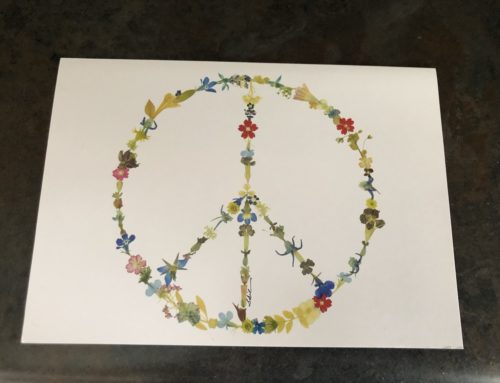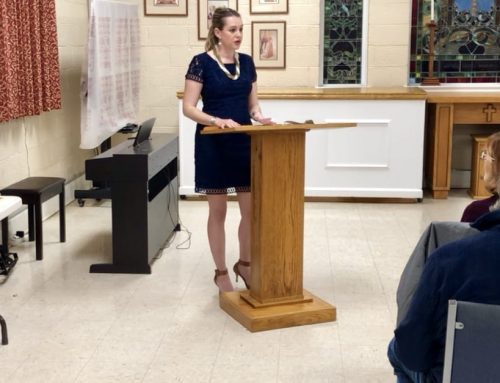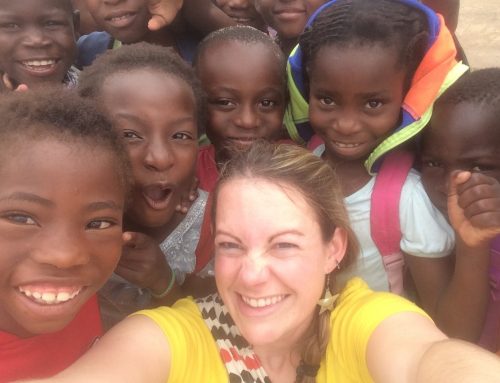Welcome to my Wednesday blog series exploring women’s careers, interests, and roles. Within this series, I explore how women of all ages, in all phases of their lives, make choices for themselves, their careers, their families, and their time, in general.

Frances De Los Santos
This week’s profile features an interview with Frances De Los Santos. I met Frances in June 2016 through the RESULTS network. We were introduced via email and then met in Washington, D.C. to attend a conference about ending poverty, the annual RESULTS International Conference. Frances was quiet and shy, but she soon amazed me with her calm knowledge and ability to provide a narrative to her knowledge of people living in poverty.
As I led meetings on the Hill with our Congressmen, we had strategized how and when we would highlight Global Poverty issues and/or U.S. Poverty issues. In one instance, I called on her to share because we had some extra time. She wasn’t expecting that, but she shined. Her passion for education and economic opportunity is powerful.
- Frances, what did you want to be when you grew up and how has that evolved?
When I was younger, I wanted to be an artist. I loved drawing and wanted that as a career until I reached high school. In high school, I got pregnant and decided to opt out for a more realistic goal. Having a child forced me to focus more on her rather than myself. So I decided the health field would be a good option because the income would be good. I thought that was the best way to help people, which was another passion, but once I got to college I realized there were so many other ways to help people. - What do you do in your “day job” and why have you chosen that?
Currently, I work as a Program Coordinator for TRIO Talent Search, a college prep program that works with middle and high school students to increase knowledge of college access and ultimately help students find the right college for them. I do site visits where I conduct short workshops with middle school students. I also have individual meetings with the seniors in the program to help them with their college applications, register for the SAT/ACT, complete their FAFSA, and help them determine which college is right for them. When I’m not meeting with students or doing site visits, I am planning trips and prepping for workshops, while establishing relationships with school staff to best serve our students. I chose this line of work after being a College Adviser at a high school for 2 years because I really fell in love with providing college access to students. I believe this is one way to make the United States better. - That is a challenging start. How happy have you been with your choices, along the way?
I’m pretty happy with them. I love my job and really enjoy working with students. They make the work fun and the job is rewarding in many ways, despite challenges that arise from time to time. I have had my share of personal and professional growth in doing this work and I am excited to see where it goes. - What advantages, barriers, and motivators for women have you observed?
Science has shown that women are able to move back and forth between tasks a lot easier than men so I think that is an advantage on its own. We’re able to juggle different tasks. However, I think a down side is that it’s already expected of us to juggle so many things simply because we’re women. One barrier I think we have as women is that it’s harder for us to be taken seriously. This can be applied to the work force, mental health, physical health, etc. There are many situations in which women are portrayed as just exaggerating, or somehow any time we’re emotional it’s because of our menstrual cycle. This seemingly small barrier causes women to be invalidated in many aspects of their lives. I would say one motivator would be that we know we’re not taken seriously a lot of the time so we use this to push ourselves. We shouldn’t have to prove ourselves just because we’re women, but we do and so we work harder and try to take on many things on our own to show that we are just as capable as men.
- What is your passion and why is it important to you?
Social justice. Too many people go around saying that the world isn’t fair and that we should get used to it, and while I am all for adapting to situations, I believe it’s important for us to make the world a better place. There is no reason for us to allow injustice to be the norm. I grew up in a low income, single parent household. My mother is a Mexican immigrant. Throughout my childhood, I saw her not only struggle financially, but also because she is Latina. I’ve seen what poverty can do and what gender and racial inequality does. I don’t think it’s right for children to have to view these as their realities when others are given the benefit of having their childhood be free of these things. You hear people say “children are too young to understand racism” when talking about why white children shouldn’t be taught certain things, yet children of color grow up living it. As a result of witnessing these things firsthand from a young age, I have become passionate about social equality. - What do you devote most of your time to outside of work?
My health, my daughter, and RESULTS. I try to fit in some gym time before work — though getting up at 4:50 am is the most difficult part! I also go on walks during the weekends. After work, I devote my time to my daughter since our schedules are so busy. Additionally, I am a member of RESULTS and try my best to attend the meetings and participate. I have a REAL Change fellowship through RESULTS and write letters to the editor. My focus is raising awareness of racial income inequality and the expansion of the Earned Income Tax Credit. My time management skills are not the best, so I haven’t successfully balanced everything, but I’m working on improving so I can do these things more efficiently. - That’s pretty deep. How do you feel most inspired?
The possibility of change always inspires me. We have a long way to go and sometimes it feels like things will never be better in regards to equality for underrepresented groups, but seeing slow progress and knowing that it can continue to be better always helps motivate me. - Throughout all of your experiences, who do you most look up to?
I look up to my mother and Michelle Obama. My mother because of everything she has done for my siblings and me. She uprooted her life and moved to a new country in order to provide a better future for her children. She’s the hardest working person I know. I can’t say I have met many people who would sacrifice as much. Michelle Obama because she’s such a successful woman who inspires many people. - What are some of the biggest challenges you have faced?
I think one of my biggest challenges so far, is coming to terms with failure and redefining it for myself. I struggled with this a great deal during my first year of college. I had never failed a class before so when I failed chemistry it took a toll on me. I didn’t know how to cope and so, for me, failing this class translated into me being a failure in life and failing my family. Being the child of an immigrant, you feel a sense of guilt if you don’t become this perfectly successful and stable person. You feel like you owe it to your parent(s) to be the best in what you’re doing because you’re the reason they gave up so much. I carried this with me since childhood and I believed I was going to be the perfect person until I failed that class. Failure used to feel like the end of the world, but I’ve gotten better at changing my definition of failure and not letting it become my entire identity. Over the years, I’ve tried not to put so much pressure on myself to have everything figured out. - Last one, what’s the best and worst advice you’ve ever received?
The best advice I’ve received is “Take your time.” We have this expectation of where our life should be by a certain point and we rob ourselves of new experiences because we think we’re supposed to stick to a certain trail. Life isn’t that simple and accepting this has helped tremendously; I just wish I would have realized it sooner. The worst advice was when someone has said that my anxiety is irrational and I should ignore it. I know how irrational anxiety can be, but that doesn’t mean the feeling just goes away. It seems insensitive to offer that as a solution any time someone struggles with anxiety, depression, etc.
Connect with Frances on LinkedIn and follow her on Instagram.
Thanks for reading Frances’ story. Share in the comments how it impacted you or share it on social media. Check out next week’s weekly post on Women & the Ways We Work. Know someone you think should be featured? Contact me and let’s chat.




Leave A Comment
You must be logged in to post a comment.